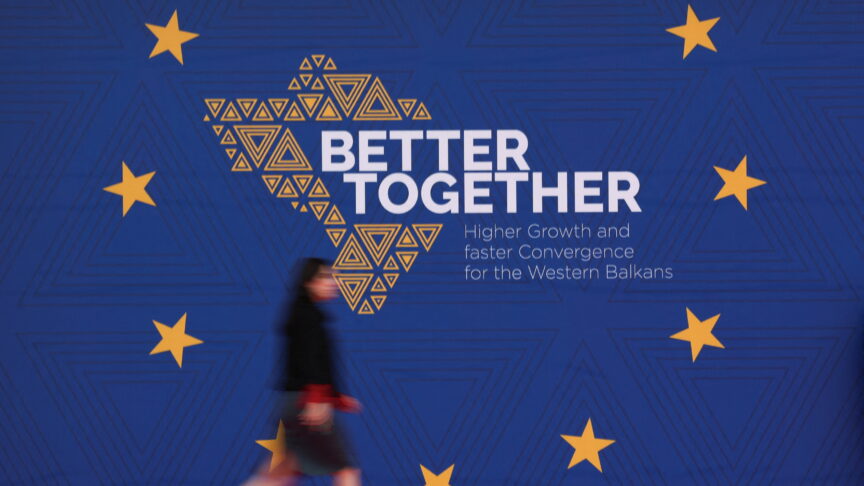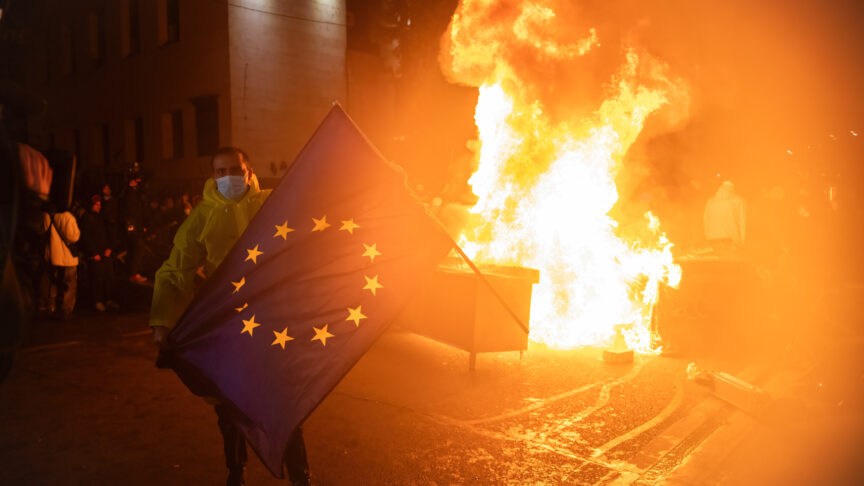Glass half full: The EU’s policy on Belarus
The current renaissance of civil society in Belarus has been possible thanks to, among other things, the development of the EU’s dialogue with the country in recent years
The European Union is often criticised, from inside as well as outside the union, for having an ineffective foreign policy – an inability to defend its interests and values in unstable regions, even those in its neighbourhood. Critics often cite the situation in Belarus as one of the most striking confirmations of this in the Eastern Partnership. (The European Council on Foreign Relations has recently published a policy brief by Gustav Gressel and Nicu Popescu on just this topic.)
Over the years, the EU has made many attempts to bring Belarus a little closer to democratic standards of free speech, political choice, and media freedom, while calling on the Belarusian authorities to observe other fundamental human rights. Yet these efforts have had modest results, at best.
Accordingly, many observers predicted that the current political crisis in Belarus would see another terrible failure of EU foreign policy. The country’s presidential election in August was, like others before it, a decorative event with a predetermined result. The Belarusian authorities have continued to take political prisoners – and now there are hundreds of them, not just a few. Police violence and other forms of repression have reached incredible proportions.
However, is the EU’s approach to Belarus really that bad? Arguably, the glass is half full rather than half empty.
A distinctive feature of EU-Belarus relations during President Alyaksandr Lukashenka’s rule has been their cyclical nature. For decades, the parties have been caught in what appears to be a vicious circle of “freeze-thaw-freeze”.
In recent years, the EU has periodically employed the tactics of sanctions, threats, and refusal to cooperate in its dealings with Belarus. Meanwhile, the bloc has also tried to tempt Lukashenka with incentives, using soft power and dialogue to try to convince him to become a political vegetarian. None of these approaches has led to the desired outcome. Yet the reason for this is not a lack of creativity from European policymakers.
Even Russia – which has far greater influence than the EU in Belarus – has poured tens of billions of euros into the Belarusian economy without achieving its aims to establish a single currency or a union government, let alone that to unify the two states. In return, Lukashenka has refused to recognise Russian-backed territorial claims in South Ossetia, Abkhazia, and Crimea, and has taken control of the local branch of Gazprombank.
The hidden strength of the EU lies in both Lukashenka’s unlimited love of power and Russia’s plans for Belarus.
The explanation for this is simple: both EU and Russian plans for the future of Belarus are fundamentally at odds with Lukashenka’s vision of it. However, the more vulnerable an ageing authoritarian leader becomes, the better the chances that a foreign power will advance its interests in the country he runs.
The current renaissance of civil society in Belarus has been possible thanks to, among other things, the development of the EU’s dialogue with the country in recent years. Lukashenka’s sense of a threat from the east – heightened by Russia’s annexation of Crimea – forced him to more actively diversify his foreign policy, by looking for opportunities to improve relations with the EU and the United States. For this reason, he restrained his repressive state apparatus and provided civil society initiatives with some space to grow.
Over the last few years, Belarusian state bodies have come to see cooperation with Western countries as less toxic as they once did. Belarus became a negotiating platform for the Ukrainian crisis, introduced a limited visa-free regime for EU citizens, and released its few political prisoners.
Yet the events now taking place in Belarus require the EU to take a completely different approach. Naturally, the bloc has imposed sanctions on the Belarusian authorities once again.
The EU does not have simple and effective tools to undermine Russia’s position in Belarus or directly pressure the Lukashenka regime. Paradoxically, the hidden strength of the EU lies in both Lukashenka’s unlimited love of power and Russia’s plans for Belarus.
For many years, Lukashenka played on European fears that Belarus would be absorbed by Russia. But it is he who is primarily interested in preserving the independence of Belarus – without which he will lose his power.
The lack of a dialogue with the EU or the US will make it impossible for Belarus to resist Russia’s onslaught on its sovereignty. As a result, the Belarusian leadership will want to regain its room for manoeuvre on foreign policy. It will likely return to its traditional bargaining around political prisoners, while blackmailing the EU and the US with the spectre of the Russian threat.
The Belarusian authorities will continue to respond to calls for Lukashenka’s resignation and a new election with illusory constitutional reform. And they will simulate a dialogue with civil society groups and demand that Western countries soften their positions.
Will this work once again? It might. However, the current situation looks very different from previous crises.
Before now, the EU had little alternative but to speak to Lukashenka if it wanted to engage with Belarus. But the president has lost his legitimacy in the eyes of the Belarusian people. Recent months have been marked by an unprecedented development of civil society, which has defended its place in the political landscape. The people of Belarus have become the EU’s closest ally in the country – in both their shared values and their shared goals.
The personal sanctions that the EU has imposed on several Belarusian officials are symbolic rather than capable of exerting any influence on the political processes. However, the bloc’s use of broader economic instruments – such as the suspension of all cooperation programmes that allocate funds to the Belarusian state, and of any form of lending to the Belarusian economy – would have a much greater effect.
It is important for the EU to set up a mechanism that provides real assistance to victims of state repression: free education for expelled students; jobs or financial aid for those who have been sacked or forced to go on strike; medical rehabilitation for those hurt by the police; and a visa-free regime for all Belarusians. In parallel with this, the bloc should develop a positive agenda for the future, particularly a large-scale programme of financial assistance to Belarus once the country has held a free and fair election.
There is no easy solution to the crisis in Belarus, but rumours of the EU’s failure in the country have been greatly exaggerated.
The European Council on Foreign Relations does not take collective positions. ECFR publications only represent the views of their individual authors.


